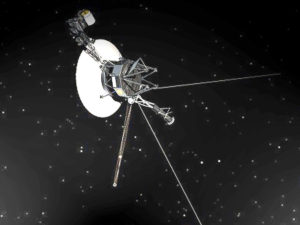
In compiling my personal Shadow Clarke shortlist, I’ve opted to forego the pressures of dutiful or adventurous reading, and have stuck to a selection of books which, for various reasons, I’d already planned to read. Partially, I’ve done so out of pragmatism: it’s hard enough at the best of times to force myself to read something in which I have little to no existing interest and whose premise doesn’t appeal to me, and if I can’t actually bring myself to read my selected works, there’s little point in being a shadow judge at all. At the same time, I’d argue that the parameters of the Clarke Award are such that the final selection of any judge or judges, whether shadow or otherwise, is always going to hinge on personal taste. The submissions list, as the name suggests, does not come pre-curated: in order to be in contention for the award, eligible works need only be submitted for consideration by their publishers. While there’s invariably a fascinating conversation to be had about which of their titles particular houses either forget, neglect or actively decline to submit in the first place, the impact of those choices is at best a process of curation by collective omission. That being so, the contents of the submissions list as is become something of a crapshoot, running the gamut from obvious, big-name contenders to self-published indies to midlist titles flung at the wall to see what sticks. But then, science fiction, when not broken down into subgenres, is a spectacularly broad mandate – how else can it be honestly navigated except through personal preference?
Of the 108 titles on this year’s submissions list, there were only three I’d already read – Ann Leckie’s Provenance, N.K. Jemisin’s The Stone Sky and Yoon Ha Lee’s Raven Strategem – all of which I thought excellent in very different ways. As such, I’m using them as my yardstick, or yardsticks, against which to measure my shortlist choices; though of course, given the range of themes and settings on offer, no direct comparison will be perfect. That being so, it only seems fair to start with a brief summation of what, in my mind, the competition is up against.
Provenance, set in the same world as Leckie’s Ancillary trilogy but separate to its events, is deftly personal, the story as much about identity, family and belonging as intergalactic clashes of race and culture. It’s also pleasingly comic at times in a way that’s reminiscent of Lois McMaster Bujold: a comedy of manners, which genre was always based on contextual rules of etiquette, transposed to space and the peoples who live therein. Raven Stratagem, the second book in Yoon Ha Lee’s Machineries of Empire series, is altogether darker, picking up right where the previous volume left off, but from a different set of perspectives. Lee’s worldbuilding, like the suggested workings of his reality-bending spaceships, is origami-intricate: a masterful construction of sharp politics, colourful cultures and human ingenuity. His use of language in particular is brilliant, his evocative nomenclature serving as narrative lynchpins, adding layer on layer to the story. And then there’s The Stone Sky, the final volume in Jemisin’s rightly lauded Broken Earth trilogy. The nature of the series makes it difficult to discuss the third book without royally spoiling any newcomers for the previous two, but my God, does it stick the landing – and as good as the first books are, that’s really saying something. Jemisin is a powerfully human writer, her characterisation achingly raw and intimate in a way that punches your heart through your ribs with every revelation. The Broken Earth novels marry rage and healing, monstrousness and hope, in an arc whose commingling of the technological and the magical is superlative, not only in terms of imaginative worldbuilding, but as a study of people.
Taken together, I feel that these three books serve as a solid starting point from which to explore the rest of the list – and, in this particular case, the titles I’ve elected to review. In alphabetical order, they are:
City of Miracles, by Robert Jackson Bennett
This is something of a provisional title for me, as it’s the third book in a series of which I’ve only yet read the first volume. However, given that I greatly enjoyed the original title, City of Stairs, and have the second, City of Blades, sitting eagerly on my bedside table, it would feel like a missed opportunity not to at least try for the third one, too. Like Jemisin’s work, my memory of City of Stairs is that the technological elements are firmly enmeshed with magical ones, and together with Bennett’s excellent writing and characterisation, I feel confident that these are stories I’m going to enjoy.
Into the Drowning Deep, by Mira Grant
Mira Grant, the SF-writing alter-ego of urban fantasist Seanan McGuire, is – in both incarnations – an author whose works I routinely enjoy. Though I often have critical caveats about various aspects of Grant/McGuire’s work, there’s something infectious about her raw enthusiasm for ideas, whether scientific, mythological or a hybrid of the two, that I find inherently appealing. Whatever else can be said of it, her work has charisma, and that’s always going to draw me in.
Gnomon, by Nick Harkaway
I’ve been a fan of Harkaway ever since the release of his first book, The Gone-Away World. Though I don’t quite feel that either of his subsequent offerings, Angelmaker or Tigerman, hit quite the same exquisite notes as his debut – though each for different reasons beyond the incredibly high benchmark – Harkaway remains a demon with language and a compulsively enthralling writer when he goes on a tear about something. Reading him is always a little like riding a rollercoaster, or possibly falling out of one dangerous ride and into another without being quite sure if what you just experienced was a deliberately orchestrated near-death experience or a brilliant yet terrifying coincidence, not because you’re in doubt about the tremendous skill involved either way, but because both propositions are, when viewed objectively, equally alarming.
The Stars are Legion, by Kameron Hurley
I feel strangely remiss in having fallen behind with Hurley’s work. Though I’ve read the first book in each of her other series, I’ve never embarked on their predecessors – not due to any lack of enjoyment, but rather because her trademark mix of lush worldbuilding, feminism and brutality is something that requires an emotional run-up on my end. I’m not quite sure what to expect from The Stars are Legion, particularly as it’s a standalone work, but I look forward to finding out.
Shattered Minds, by Laura Lam
Given that it’s set in the same world as Lam’s previous novel, False Hearts, without being a direct sequel to it, I’ll be particularly interested to compare Shattered Minds to Ann Leckie’s Provenance. Though I suspect the two works are very different, thematically speaking – Shattered Minds being significantly darker, with a much closer-to-now setting than Leckie’s far-future – I think an author’s ability to tell different stories within the same setting is a good way to gauge the depth and plausibility of their worldbuilding. Lam is a clean, pacey writer with a solid eye for prose, and I look forward to seeing how her not-too-distant future develops here.
The Last Days of New Paris, by China Mieville
At this point, it’s almost redundant to describe Mieville as a versatile writer; nonetheless, his commitment to writing new books in new genres and subgenres means that, as distinctively lyrical as his actual prose style is, it’s difficult to gauge any one of his books in relation to its fellows. I’ll be very interested to see how this one unfolds, both as a story in its own right and in reference to his canon.
The Collapsing Empire, by John Scalzi
Somewhat to my shame, I’ve read very little Scalzi, though his work is always on my radar. The premise of The Collapsing Empire is an intriguing one, and while I never quite got into Fuzzy Nation, Old Man’s War and The Ghost Brigades impressed me with his ability to succinctly execute a complex idea through a combination of characterisation and comedy.
Though other titles on the submissions list caught my eye – most notably Hunger Makes the Wolf by Alex Wells, which I may yet get to; call it a backup candidate – my choices were ultimately restricted by the fact that several books whose premises appealed were second or third volumes whose prior instalments I haven’t read, as was the case with Kokoro by Keith Yatsuharo and The Boy on the Bridge by M.R. Carey. Beyond this, and with a handful of notable exceptions, I was struck by how very straight-white-male the list itself was, not just in terms of the authors, but of the actual stories being told. That’s not a bad thing at an individual level in and of itself, but viewed in terms of a whole year’s SFnal output, it felt skewed – though that might also be because certain prominent SF works from last year, such as Nnedi Okorafor’s Binti: Home, Martha Wells’s All Systems Red and JY Yang’s Tensorate duology are all novellas, and therefore beyond the purview of the award. At any rate, I’m looking forward to reading my selected works, and to seeing what my fellow shadow judges have to say about them, and their other choices, in turn.
*
Foz Meadows is a genderqueer fantasy author, essayist, reviewer, blogger and poet. She has most recently published An Accident of Stars, A Tyranny of Queens with Angry Robot, and Coral Bones with Rebellion. Foz is a reviewer for Strange Horizons, a contributing writer for The Huffington Post and Black Gate, and a repeat contributor to the podcast Geek Girl Riot. Her essays have appeared in various venues online, including The Mary Sue, A Dribble Of Ink and The Book Smugglers. She is a two-time Hugo Award nominee for Best Fan Writer in 2014 and 2017, and won the 2017 Ditmar Award for Best Fan Writer, having also been nominated in 2014 and 2016. In 2017, An Accident of Stars was a finalist for the Bisexual Book Awards.
1 Comment
Pingbacks
-
[…] CATCHING UP. Here are “Some Pragmatic Picks by Foz Meadows” a 2018 Shadow Clarke […]


